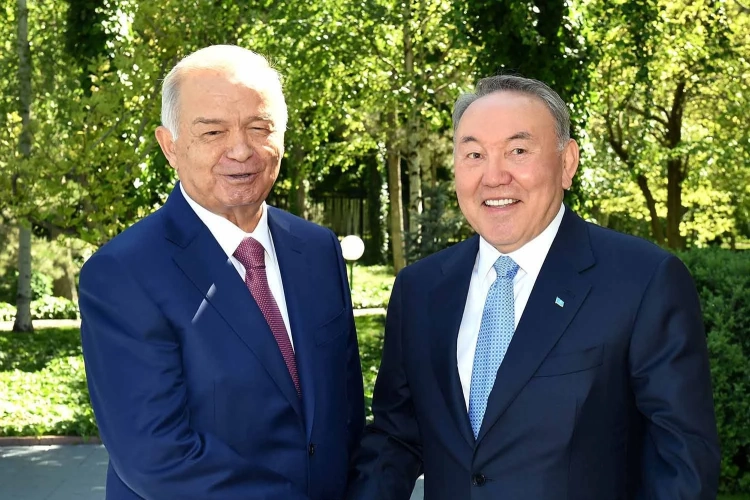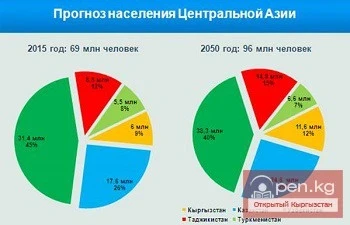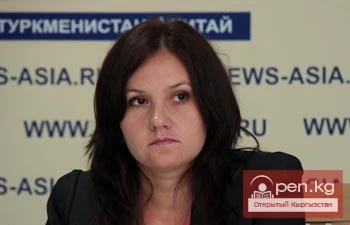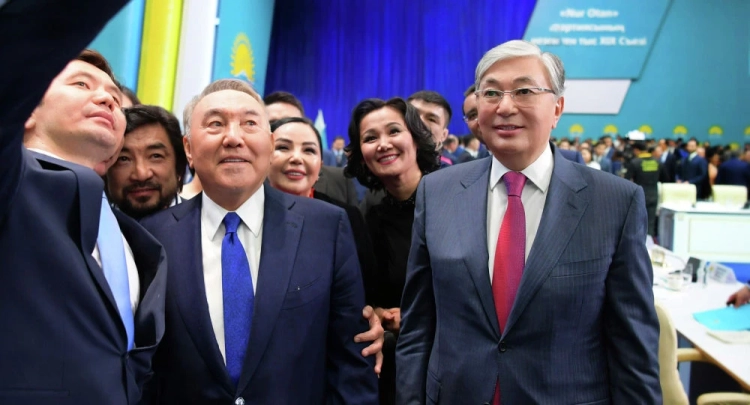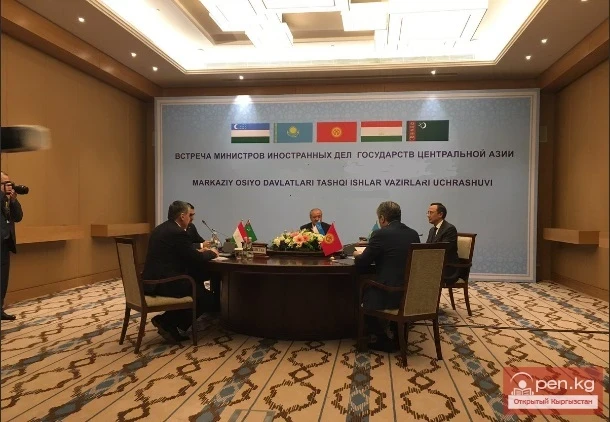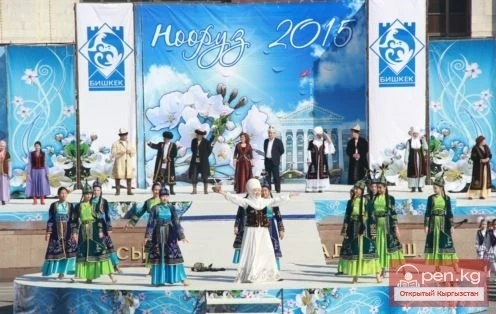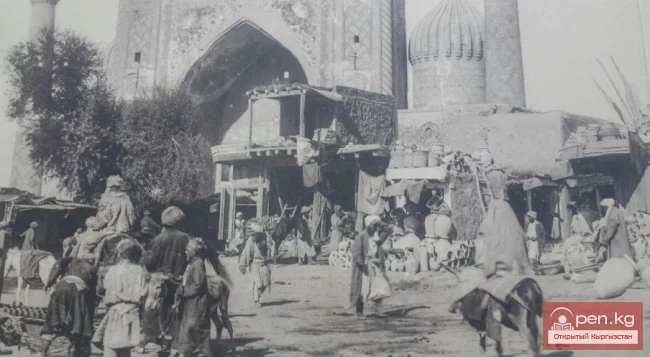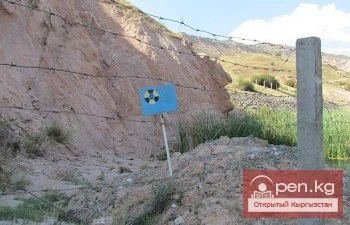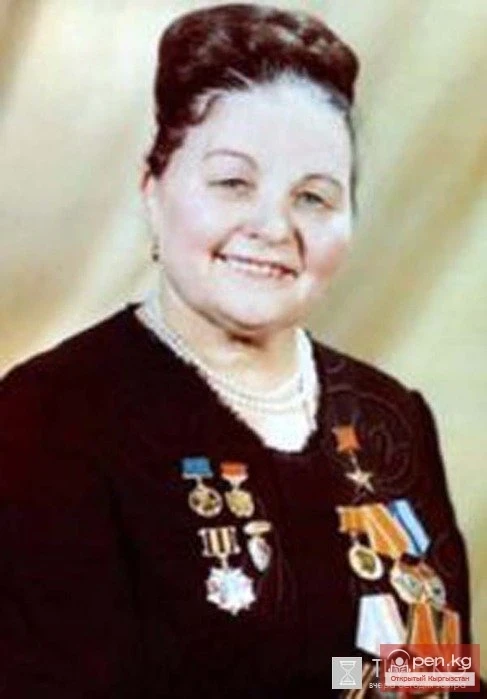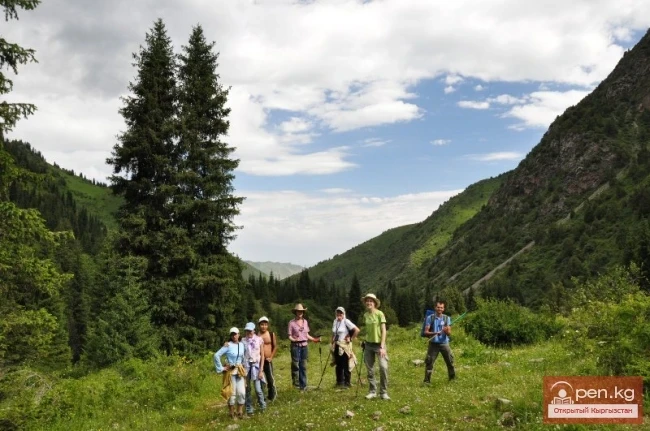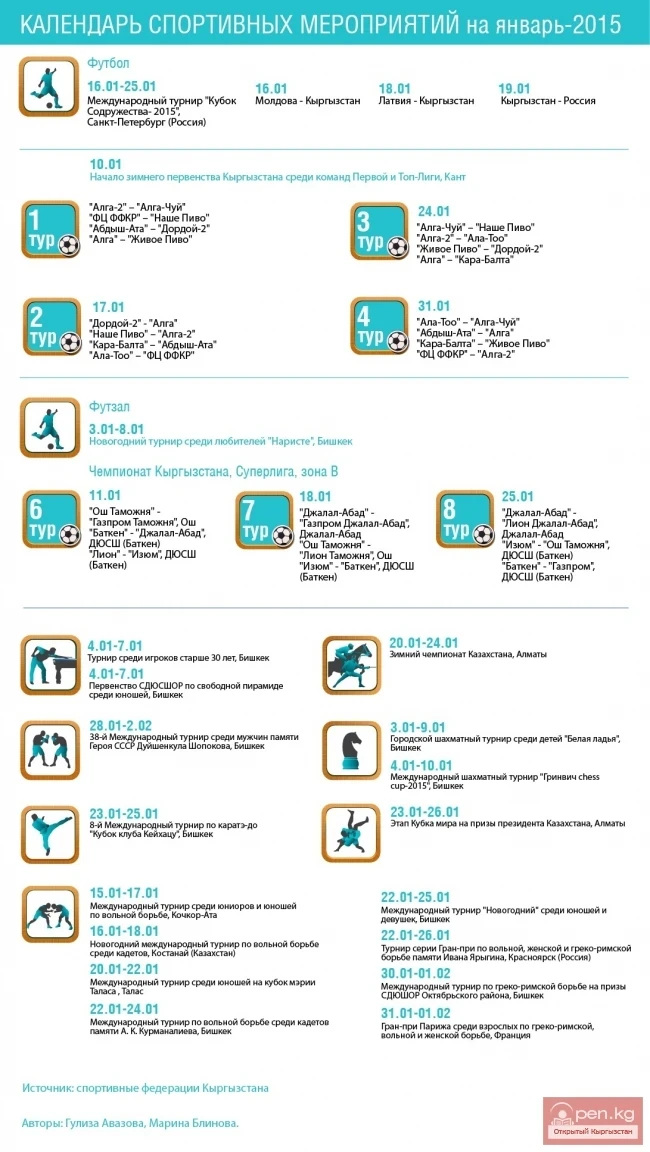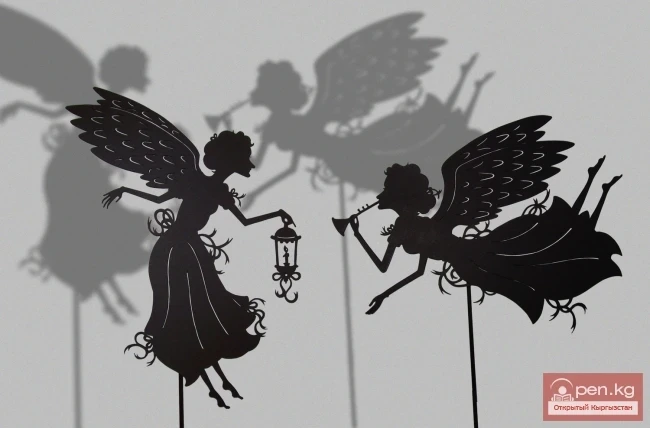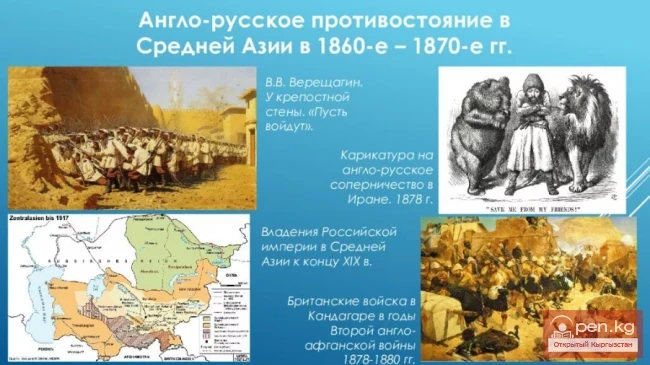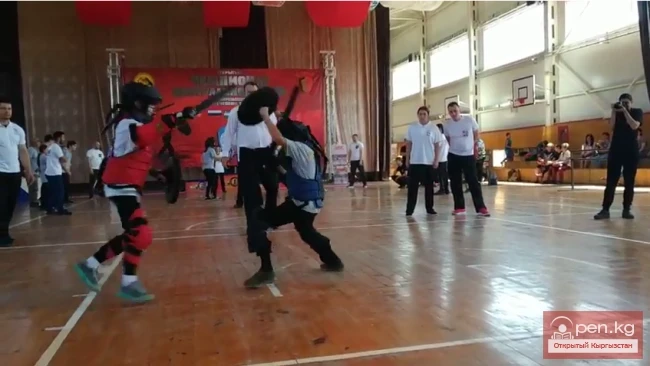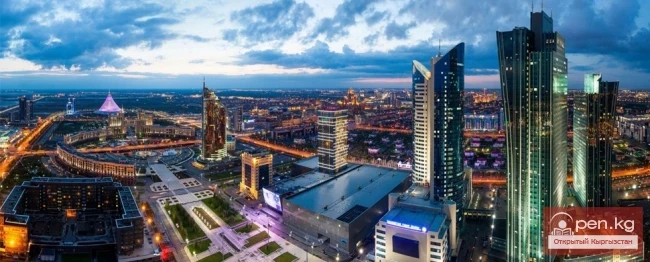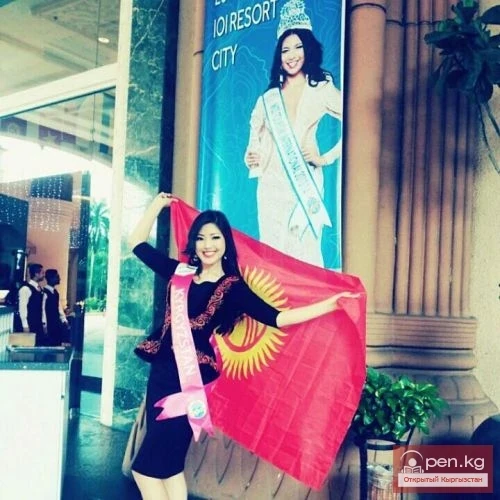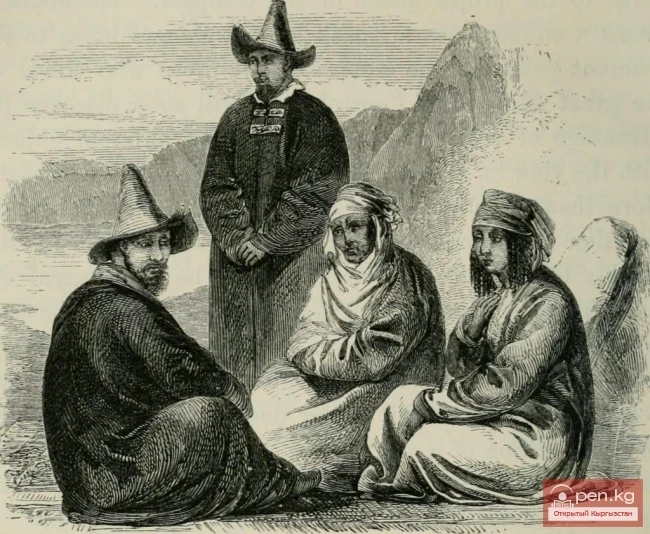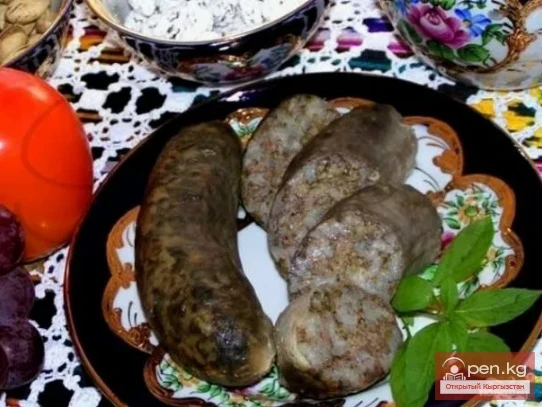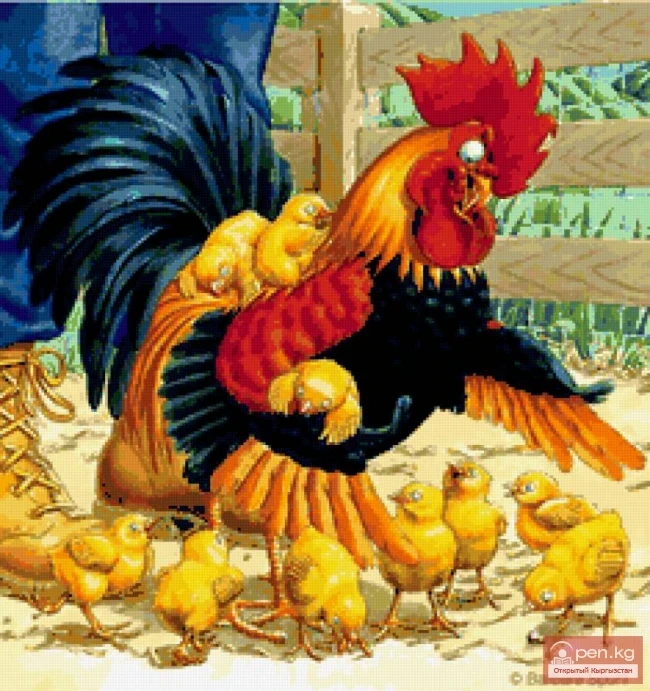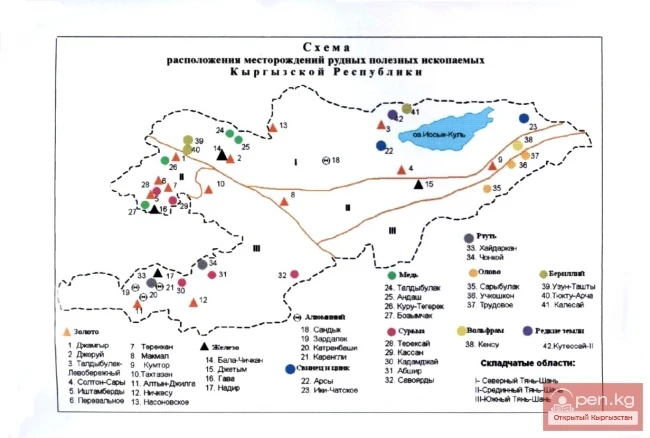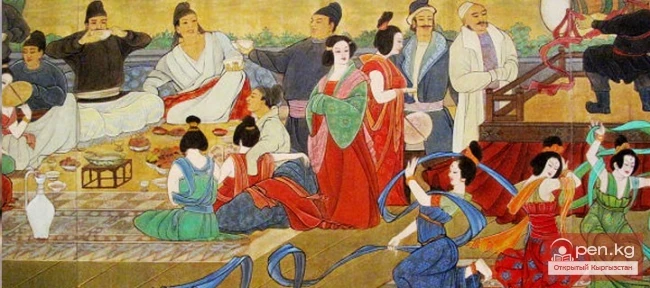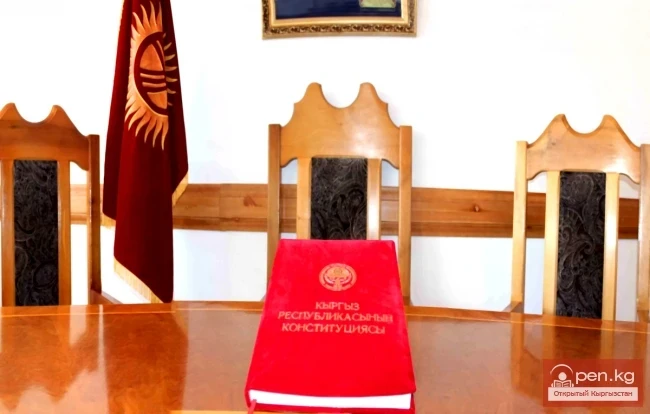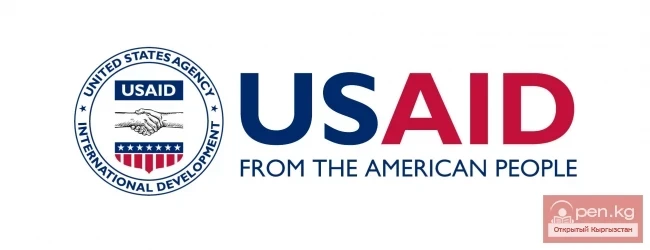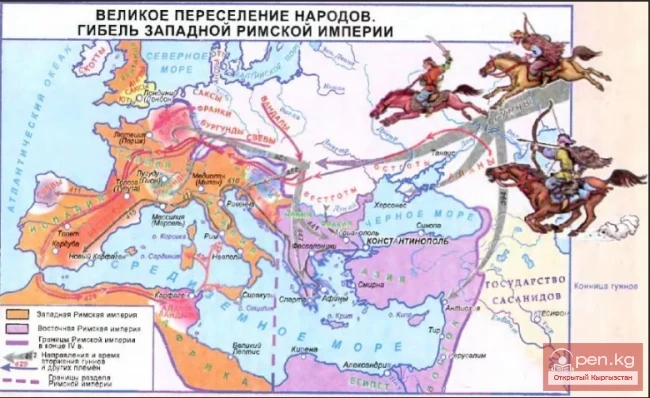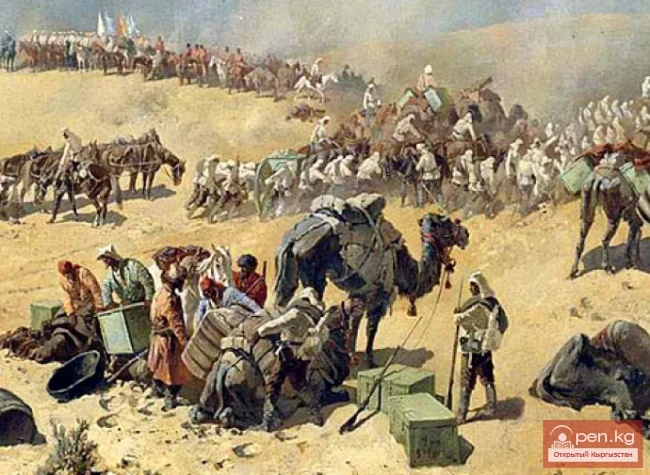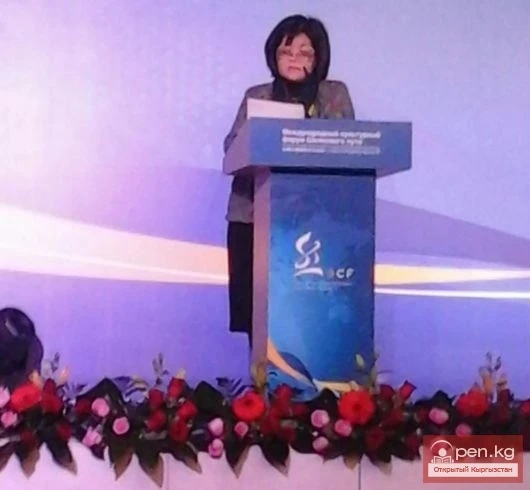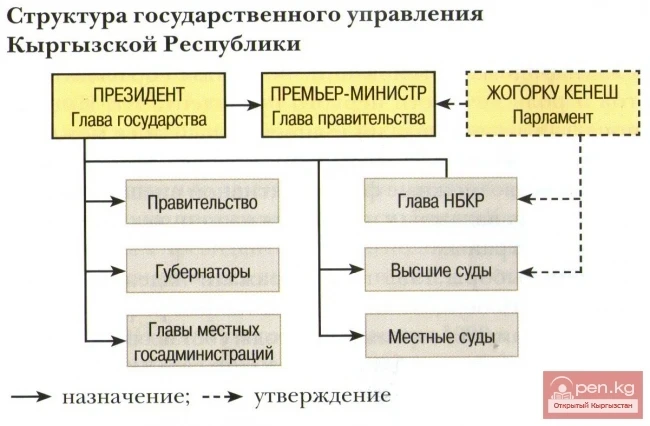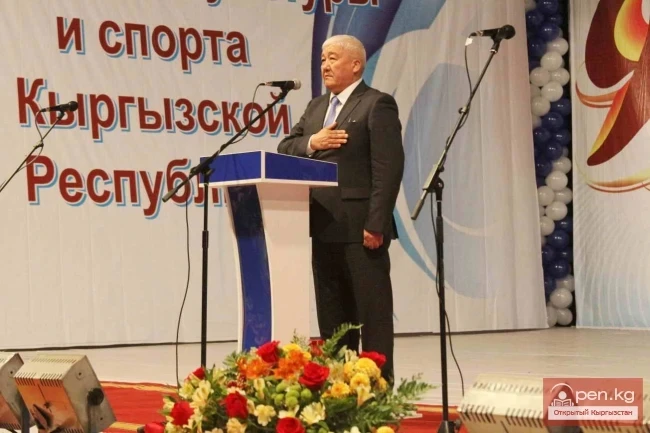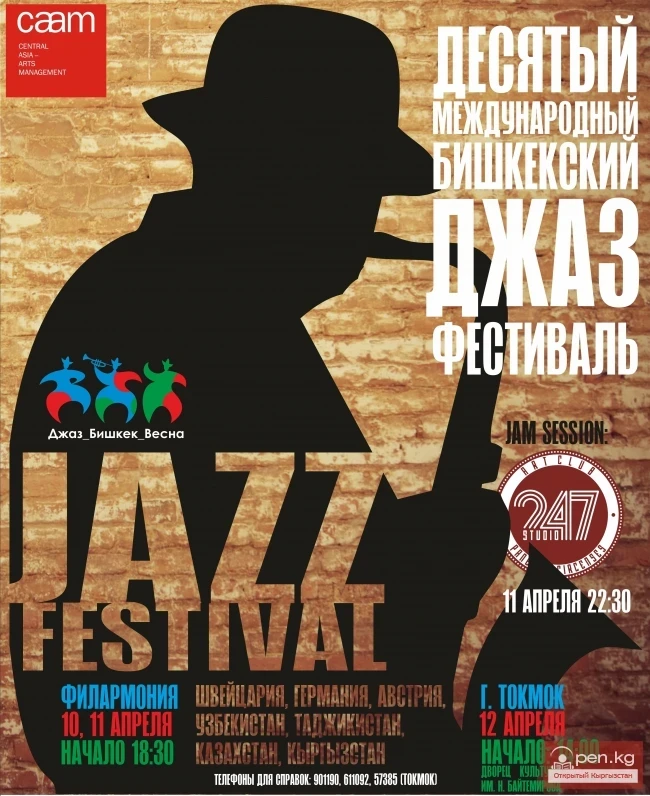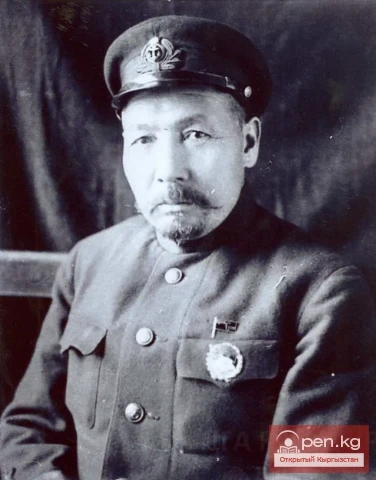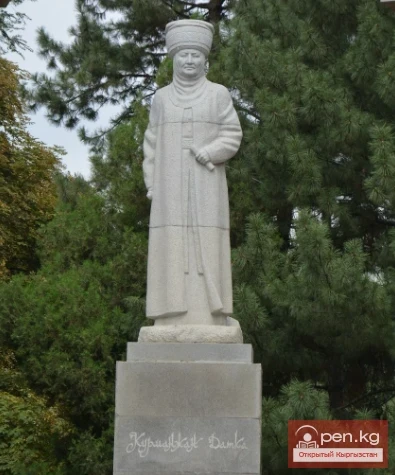The phenomenon of the cult of personality in Central Asia has been forming for many years, but it can collapse in an instant. After the death or political downfall of a leader, their devoted admirers quickly switch to a new ruler. How this process occurs, where "national leaders" are revered, and how they become forgotten figures is explored by Azattyk-Asia.
FORGOTTEN "NURSULTAN"
Just five years ago, it was unimaginable that the newspaper "Egemen Kazakhstan" could go without images of Nursultan Nazarbayev, and publications about him were on the front pages. Attention to the "Leader of the Nation" did not wane; his meetings and events were in the spotlight even on the state television channel "Khabar".
With the events of Bloody January, which changed the political situation in the country, Nazarbayev faded into the background, and his successor Kassym-Jomart Tokayev began to dominate. References to Nazarbayev became less frequent, and the only news about him that appeared in "Egemen" and "Khabar" was related to Tokayev's congratulations on his 85th birthday — this happened four months ago.
For nearly three decades, Nazarbayev was a symbol of Kazakhstan; his image and the state structure were inextricably linked. In the Constitution, he was designated as the "founder of independent Kazakhstan," and the title "elbasy" (Leader of the Nation) solidified his influence. His images could be seen everywhere: from government offices to school textbooks and on money.
Some deputies even compared Nazarbayev to the sun, whose "nursultan" illuminates Kazakhstan. In 2019, when Tokayev became president, he proposed naming the capital and streets in his honor, which elicited thunderous applause in parliament.
“He was presented as the ‘father of the nation,’ whose legacy should leave a mark in history,” notes Bruce Pannier, a journalist and researcher who has long studied Central Asia.
According to Pannier, subordinates often compared Nazarbayev to figures such as the first U.S. president George Washington and the founder of modern Turkey Mustafa Kemal Atatürk. However, after the start of the "de-elbasyzation" process, critical remarks began to emerge.
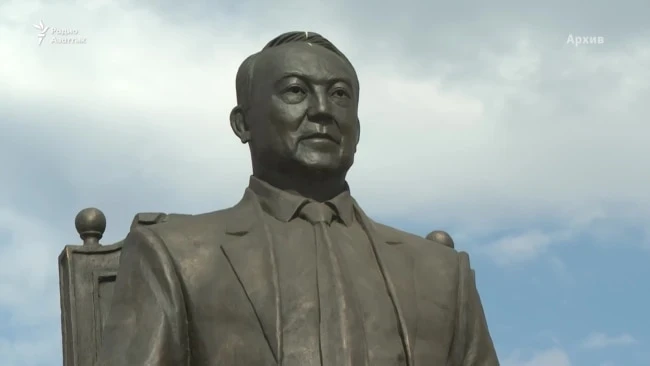
In March 2025, Majilis speaker Erlan Koshanov, who had previously built his career under Nazarbayev, stated that the super-presidential system established under Nazarbayev led to a serious political crisis. “The concentration of power and capital in the hands of certain groups hindered the country's development,” he noted.
Such opinions are now widespread among those who once surrounded Nazarbayev.
“These are opportunists,” says British journalist Joanna Lillis, author of a book on political intrigues in Kazakhstan. “They turned away from him when he lost influence. The distance of friends and associates is not the legacy Nazarbayev dreamed of.”
Nazarbayev likely did not expect to witness the removal of his monuments. His statue was taken down from the National Defense University and from the exhibition at the National Museum. His description as a "global political strategist" was removed from school textbooks, and now his name is mentioned only in the context of the history of independent Kazakhstan.
In February 2023, Tokayev signed a law that stripped Nazarbayev of broad privileges. Previously, the capital, which had borne the name Nur-Sultan for three years, was returned to its name Astana. References to Nazarbayev were removed from the Constitution, including the phrase where he was called the "founder of independent Kazakhstan." In June 2025, Majilis deputy Kazybek Isa called for the complete removal of the word "elbasy" from all government documents.
“The rapid disappearance of the ‘fathers of the nation’ from memory is not only a characteristic of authoritarian regimes in the region but also reflects political loyalty in post-Soviet Central Asian countries. The cult of personality is maintained only through administrative resources and control,” notes an analyst from Tashkent, who wished to remain anonymous due to fears of persecution.
“HE TURNS STONES INTO GEMS”
Pompous lines about Tajikistan's president Emomali Rahmon, who has been in power for 33 years, were written by his daughter Ozoda Rahmon, who heads his administration. She dedicated a poem to him, claiming that he "turns stones into gems" and "sows seeds of love."
The poem "Happy Birthday, Leader of the Nation!" was recited in a video before her father's birthday, which he recently celebrated at 73. At the end of the poem, she addresses God with a request that "his shadow may forever remain over the country."
Rahmon's supporters on his birthday referred to him as "the light of God" and "the beacon illuminating the future."
High praise for Rahmon is not new. His official rhetoric emphasizes that he brought the country out of the civil war of the 90s and restored stability. Rahmon holds a lifetime title of "Peshvoi millat," which means "Founder of Peace and National Unity — Leader of the Nation," awarded to him by parliament in 2016. He can run for election as many times as he wants — there are no restrictions for him (similar rules previously applied to Nazarbayev in Kazakhstan but were later abolished).
The law of Tajikistan "On the Leader of the Nation" provides for the installation of a monument to Rahmon after his death — in Dushanbe and his native region. Previously, he himself, according to eyewitnesses, opposed such practices, citing the tradition of erecting monuments only posthumously. However, over time, his position has changed. Now his images have become an integral part of cities, placed on building facades, roadside billboards, and the walls of government institutions.
The cult of personality surrounding Rahmon has gradually manifested not only through symbolism but also through public rituals. In 2024, his annual address to parliament lasted over three hours, during which the presidential speech was interrupted by applause 120 times. These ovations took a total of about 22 minutes, and social media users compared this moment to North Korean ceremonies where officials pay respect to their leader standing and without stopping.
Critics of Rahmon argue that over the years of his rule, the country has become a family project, the opposition has been suppressed, corruption remains undefeated, and the economy has become dependent on remittances from labor migrants. According to the World Bank, in 2024, remittances accounted for 45 percent of Tajikistan's GDP — the highest figure in the world in relative terms.
THE FORGOTTEN "TURKMENBASHI" AND THE NEW "ARCHITECT OF TURKMENISTAN"
Saparmurat Niyazov was the first ruler of Central Asia to create his own cult. During his lifetime, a gilded statue was erected in his honor, and his book "Rukhname" became sacred. It was studied in educational institutions as a guide to life.
Niyazov is remembered for his self-proclaimed title "Turkmenbashi" (Father of All Turkmen). This title became a model for subsequent ones: "Elbasy" and "Peshvoi millat" emerged later.
After his death in 2006, the gilded statue that rotated to follow the sun was dismantled and moved to the outskirts of Ashgabat, and "Rukhname" was removed from the curriculum.
An expert from Tashkent notes that if the memory of a leader is based solely on top-down directives, it quickly disappears along with the system that supported it. “The stronger the cult was during their lifetime, the faster they are forgotten after their departure,” he says.
Nevertheless, in place of "Turkmenbashi" came "Arkadag" (Protector) — Gurbanguly Berdymukhammedov, who took the presidential seat bypassing constitutional procedures. He also writes books and erects monuments to himself.
“Berdymukhammedov calls himself a writer and the author of many books. Perhaps that is why he does not seek to preserve the memory of 'Rukhname' — in his Turkmenistan, there should remain only one literary name,” notes Pannier.
In 2022, a de facto dynastic transition of power occurred in Turkmenistan when Berdymukhammedov's son, Serdar, became president, officially receiving 73 percent of the votes. In October 2023, parliament awarded him the title of "Honored Architect of Turkmenistan," emphasizing the continuity of the cult.
In the country, not only the books of rulers have become sacred, but also their portraits. Images of former and current presidents are displayed in all government institutions, on buses and taxis, and their replacement is carried out regularly, often at the expense of budget employees.
Sometimes the veneration reaches absurdity. In September 2023, 15 employees of Dashoguz Airport were fired for dancing in front of a portrait of Serdar Berdymukhammedov during a colleague's birthday celebration. As reported by the Turkmen service of Radio Free Europe (Azatlyk), one of the participants posted a video of the dance on TikTok, after which everyone captured on camera was fired, and the video’s author was arrested for 15 days.
“In Turkmenistan, images of the president and his father are considered sacred. Regardless of position, if you do something inappropriate in front of their portraits, you can be fired or even arrested. This is a kind of unofficial law,” claims an Azatlyk source in the security forces.
“ALMOST DOES NOT SLEEP” AND “INSPIRES THE PEOPLE”
In Uzbekistan, after the death of Islam Karimov in 2016, the new president Shavkat Mirziyoyev initially frequently mentioned his predecessor, emphasizing the continuity of the course. But over time, Karimov's name became less and less frequent, and traces of his cult — although less grand than Nazarbayev's — gradually disappeared.
Mirziyoyev did not openly revise Karimov's legacy but actively distanced himself from it, emphasizing that the country's successes are the result of a "new approach," not a continuation of previous policies. Already two years after Karimov's death, many of his associates lost their positions, and his daughters did not attend the celebration of the 80th anniversary of the first president.
At that time, the elder daughter of the ex-president, Gulnara Karimova, was behind bars on charges of embezzlement. Her sister Lola, who represented Uzbekistan at UNESCO, refused to participate in the celebrations in Tashkent and soon left her post. The Karimov family gradually disappeared from the public space, making way for relatives of the second president: Mirziyoyev's eldest daughter, Saida, heads his administration, while his younger daughter, Shakhnaz, serves as deputy director of the national social protection agency.
The new leader began to become an object of veneration. Praise for Mirziyoyev began in the first months of his rule. Hymns of praise were sung in his honor. Uzbek actress and singer Dilfuza Ismailova performed the song "May the Sultan of this beautiful land be healthy."
In an interview with the Uzbek service of Radio Free Europe, she noted that the song was written "at the behest of the heart." In the video, which garnered hundreds of thousands of views, she refers to him as "sultan" — a title traditionally awarded to Eastern rulers.
Musical odes also contributed to the culture of Karimov. In the 90s, artist Ogabek Sabirov wrote songs for the president titled "His Bell Rings Loudly" and "A Thousand Thanks," while national artist Yulduz Usmanova referred to Karimov as "padishah" in her 2015 song "Samarkand." Later, she admitted that some of the praise songs were created on commission, including a piece dedicated to Karimov's daughter, Gulnara. Today, however, Usmanova calls her a "thief" and urges the return of the billions stolen from the people.
The natural continuation of this tradition has been the praises of the current president. In 2021, senator Kudratilla Rafikov published a text titled "The Phenomenon of Shavkat Mirziyoyev," in which he called the president "Millat sardori" — "Leader of the Nation." He admired his energy, claiming that he "almost does not sleep" and "inspires the people." Later, another deputy, Akmal Saidov, echoed these ideas, using the term "head of the nation" for Mirziyoyev.
So far, no official laws similar to those that elevated Karimov to the rank of "founder of independent Uzbekistan" have been adopted. Shavkat Mirziyoyev came to power as a reformer, promising a "new Uzbekistan" — more open and progressive. However, observers believe that his image is beginning to acquire traits of exclusivity. Songs, publications, slogans — all of this is forming that very sacred aura that previously surrounded his predecessor.
[b]DO CULTS SUBSTITUTE INSTITUTIONS?
Bruce Pannier notes that most of the first leaders of Central Asia were convinced that they were the ones who led their countries from the chaos of the early years of independence to stability and sovereignty.
“They sincerely believed — and their entourage supported this belief — that without them, the states would not survive. In their understanding, they were the architects of the nation, saviors, and symbols of their era. Therefore, the creation of monuments and naming streets and objects after them seemed a natural continuation of their power,” says the expert.
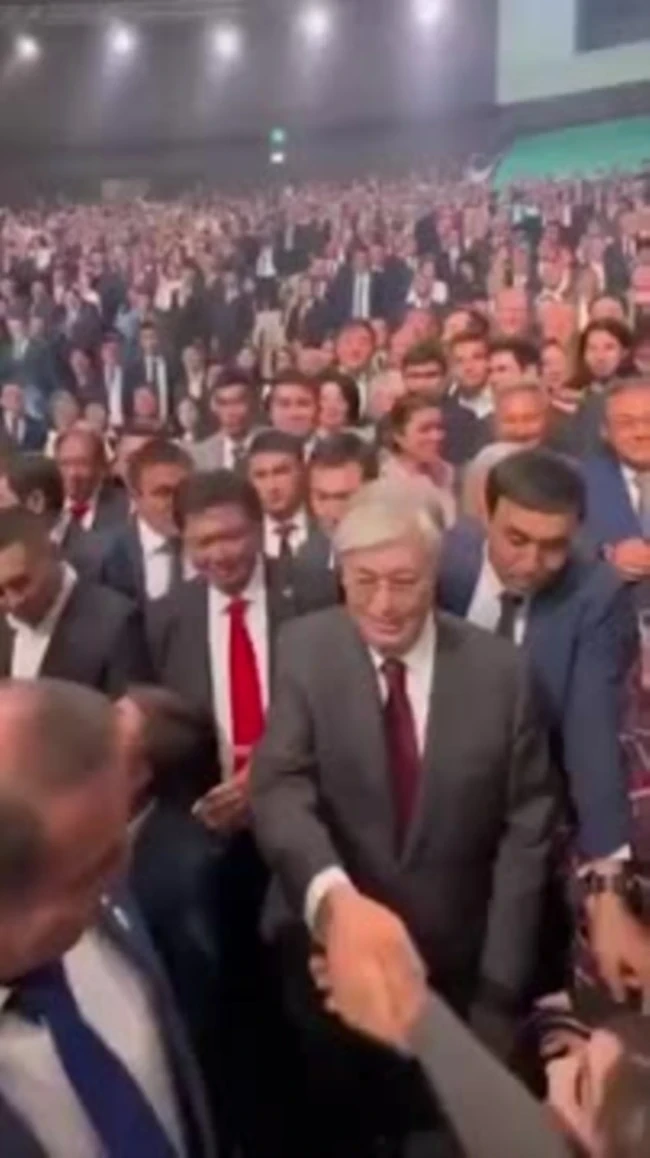
Pannier emphasizes that none of the second leaders — neither Berdymukhammedov, nor Tokayev, nor Mirziyoyev — has allowed themselves open criticism of their predecessors.
“At most — rare mentions of ‘some mistakes of the past.’ Nevertheless, the need to preserve monuments to former rulers is disappearing; they are quietly removed from the centers of capitals, and objects named in their honor are being renamed,” concludes the interlocutor.
The cult of personality exists only as long as the ruler is alive — physically, as in the case of Niyazov, or politically, as in the case of Nazarbayev. In recent years, Nazarbayev has hardly appeared in public and has made no statements.
State media publish portraits of Tokayev on the front pages, covering his speeches and meetings. He is often referred to as the "guarantor of renewal," who is shaping a "just Kazakhstan."
Observers also note that there has recently been an increasing interest in his father — Kemel Tokayev, a Soviet writer. His books are being reprinted, documentaries are being shown on television, memorial evenings and exhibitions are being held. For many, this looks like an attempt to create an image of nobility around the president — a hint that a new cult is gradually forming in Kazakhstan, only with a different face.
“I think everything in our countries revolves around personality rather than institutions,” says an anonymous expert from Tashkent. “As long as the leader is in power, he is exalted, portrayed as almost saintly. But as soon as he leaves, it turns out that there is nothing left behind except beautiful words and monuments. The true legacy is strong institutions, independent courts, free media, and a system of checks and balances. However, in Central Asia, all of this is often replaced by the cult of personality.”
```
